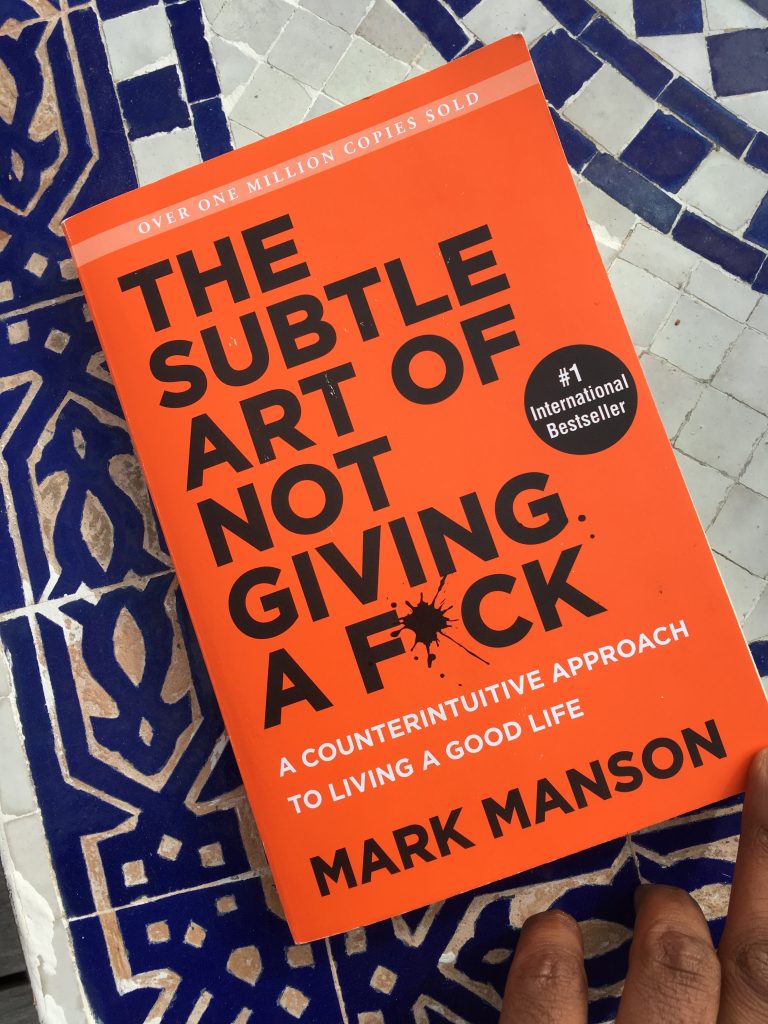In a world brimming with incessant distractions and endless expectations, the notion of caring less about certain elements of life may seem counterintuitive. However, Mark Manson’s audacious work, “The Subtle Art of Not Giving a F*ck,” provocatively invites readers to reevaluate their priorities and reassess what truly merits their attention. An enticing blend of humor, candid storytelling, and pragmatic wisdom, this book serves as a clarion call to embrace a more discerning approach to our concerns and aspirations.
At its core, Manson articulates a resounding truth: life is replete with challenges, and our emotional energy is finite. When we invest our mental bandwidth into things that are inconsequential, we dilute the strength required to navigate those moments that genuinely require our presence. Much like a gardener who meticulously curates which plants to nurture, we too must discern where to allocate our emotional resources. The philosophical underpinning here resonates profoundly with various existential thinkers who have grappled with life’s inherent absurdities.
One of Manson’s most intriguing metaphors is that of the “feedback loop from hell,” which articulates the cyclical nature of our anxieties. When we worry excessively about our worries, it creates a state of perpetual unease. This damaging cycle can trap us in a quagmire of self-doubt and frustration. Instead, Manson urges us to confront our fears and embrace discomfort. It’s through grappling with the tough stuff that we cultivate resilience. This concept resonates with the age-old adage that one must “feel the burn” in order to grow.
The author boldly challenges the normative frameworks of traditional self-help with a refreshing boyish candor. He posits that the pursuit of happiness is fundamentally flawed. Happiness is not an endgame but rather a transient state. For Manson, fulfillment stems from finding meaning in our struggles, not merely fleeing from them. This concept becomes especially vivid when he introduces the idea of the “do-not-give-a-f*ck” metric. This personalized yardstick allows us to sift through the noise and focus on what garners genuine significance in our lives.
Manson’s prose is imbued with a candid authenticity, underscored by his willingness to share his own failings and missteps. Further, he deftly navigates through a plethora of themes— from relationships to success, and societal pressures to personal failures— all with the singular aim of encouraging readers to adopt a more disciplined approach to their emotional investments. When we stop obsessing over the extraneous, we create space for the intrinsically rewarding aspects of life.
Delving into the realms of personal responsibility, Manson eloquently argues that external circumstances are often beyond our control; however, our response to those circumstances invariably shapes our experiences. In this light, embracing accountability is pivotal. One must be willing to accept that the choices we make, no matter how trivial they may seem at the moment, chart the course of our lives. This notion can be likened to a ship’s captain who, despite turbulent seas, diligently navigates with intention to reach their destination.
As the book unfolds, readers are encouraged to confront their values head-on— a daunting endeavor, albeit a necessary one. Manson posits that many individuals blindly adopt societal values, such as wealth and popularity, without ever pausing to ask if they truly hold significance for them personally. This aligns perfectly with the ancient wisdom of Socratic questioning, which emphasizes the necessity of dialogue with oneself to unearth authentic desires and aspirations. Ask yourself: what do you truly value? What drags you down in the relentless tide of societal expectations?
Moreover, Manson’s candid approach serves as a refreshing balm against the monotonous platitudes often associated with self-improvement literature. Rather than presenting idealistic solutions or overzealous optimism, he confronts the harsh realities of life with gusto. Through relatable anecdotes and poignant observations, he reveals that embracing the discomfort of our existence can indeed be a liberating experience. Much like the phoenix rising from its ashes, true transformation often comes from encountering and overcoming adversity.
In terms of stylistic flair, Manson’s voice is imbued with a vibrancy that captivates from the outset. His irreverent humor—a playful juxtaposition against life’s gravitas—invites laughter amid introspection. This duality not only enhances readability but encourages a more profound reflection. It is through this compelling fusion of humor and gravitas that readers find solace; they are reminded that they are not alone in their struggles. The vulnerability shared within these pages fosters a sense of kinship between the author and the audience, binding them through shared human experience.
To distill the art of not giving a f*ck, Manson implores us to cultivate meaningful relationships, engage in honest self-assessment, and ultimately—choose wisely what deserves our f*cks. This selective attention becomes vital in a society that clamors for our compliance and emotional investment. By consciously determining our focal points, we elevate our existence, allowing authenticity to flourish amid the chaos.
In conclusion, “The Subtle Art of Not Giving a F*ck” transcends conventional self-help narratives by embracing the complexity of human experience. Manson’s profound insights are not just provocations; they serve as an invaluable guiding compass for navigating the turbulent waters of life. By redefining what truly matters, readers can embark on their journey toward fulfillment with renewed vigor and an enriched understanding of their own narratives— one deliberate “f*ck” at a time.
